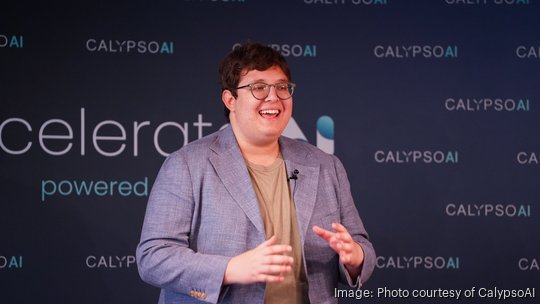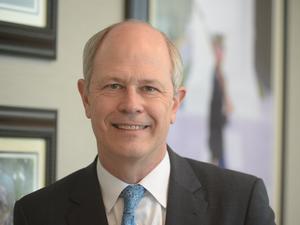
D.C. AI cybersecurity startup CalypsoAI raised $23 million in a Series A-1 round to invest in product development with a goal to double employee count over the next two years as generative AI grows in popularity.
The company's platform allows clients to use generative AI by making sure their data doesn't leak or get hacked by a cyberattacker.
Generative AI has skyrocketed to the public consciousness in the last year with the debut of DALL-E 2 and ChatGPT, which can be used to create psychedelic art, write essays, teach complex coding skills and write your Tinder profile. But that surge has forced many companies to question whether the tools are safe to use. It's why companies like Apple, JPMorgan Chase and Verizon ban or restrict the use of ChatGPT-like tools at work.
“We felt to really accelerate the adoption of AI that one of the big roadblocks that we saw in both governments as well as commercial organizations is this kind of lack of trust in the systems,” said Mourad Yesayan, a managing director at Paladin Capital Group, the lead investor in the round. “So in other words, how do you operationally have confidence that these models will do what you expect them to do?”
The round had participation from Lockheed Martin Ventures; Hakluyt Capital, the venture arm of London consulting firm Hakluyt and Co.; Polish venture firm Expeditions Fund; and angel investors including SafeGraph CEO Auren Hoffman, former YouTube CEO Susan Wojcicki and her sister, 23andMe co-founder Anne Wojcicki. CalypsoAI has raised $38.2 million to date.
The company was founded in Silicon Valley in 2018 by CEO Neil Serebryany. In 2020, he moved to the D.C. area along with the rest of the C-suite to be closer to his government clients at the Air Force, Pentagon and Department of Homeland Security. The company has about a third of its workforce in the Northeast with the other two-thirds near offices in Dublin, Ireland, and San Francisco.
"One of the beliefs that’s really sharpened for me over the last couple of years is great companies really need to have a talent advantage to be able to scale and grow,” Serebryany said. “One of the issues inherent to the Valley is how short job tenures are. For example, pre-Covid, the average employee stayed at a company for under 11 months.”
What makes the D.C. area stand out for Serebryany is not just the proximity to clients but access to a diverse talent pool, which includes people with backgrounds in finance and government services along with tech talent. The company has over 40 employees now, according to Serebryany, and he plans to use the new funds to double the headcount over the next two years and invest in further product development for AI cybersecurity products.
Serebryany declined to disclose revenue.
A recent McKinsey report said generative AI could add $2.6 trillion to $4.4 trillion to the global economy.
In this current economic market of high interest rates, he doesn’t plan to let the hype around generative AI make him inefficient with his capital.
“We might recognize opportunities in the market and the opportunities to build a full-stack solution for AI security,” he said. “And that belief in smart growth is really what drives our decisions from a financial perspective and from a venture perspective.”

